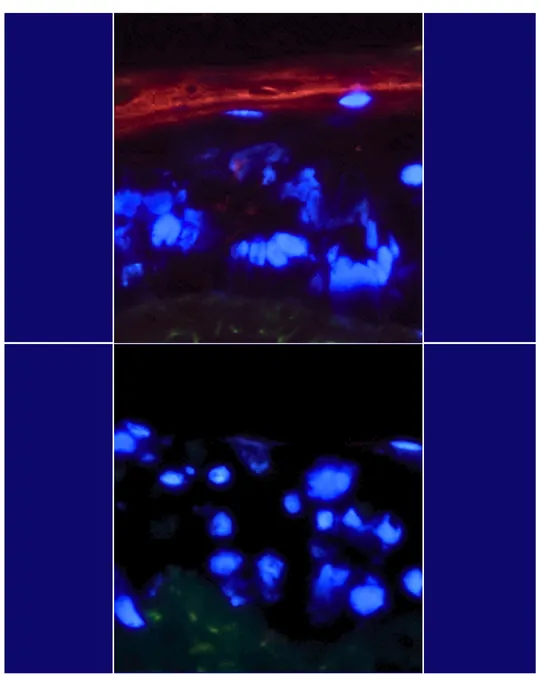
Groundbreaking Stanford Study Unveils Glucose as a Key Player in Tissue Regeneration
2025-03-25
Author: Sarah
A Surprising Discovery
When Khavari and Lopez-Pajares embarked on their investigation, they initially aimed to identify molecules involved in the differentiation of human skin stem cells into keratinocytes, the predominant cells in the outer layer of the skin. Through advanced techniques like mass spectrometry and high-throughput screening, the research team tracked thousands of biomolecules during the differentiation stages. They anticipated observing a decrease in glucose levels as the stem cells transitioned into mature cells due to reduced energy demands.
However, to their astonishment, glucose emerged as the second-most elevated molecule in this process. Khavari expressed surprise, stating, “We had expected glucose levels to decrease during differentiation, yet they actually increased significantly as the cells progressed towards maturity.”
Confirming the Findings
Further investigation revealed this increase in glucose levels was not merely an artifact; it was backed by multiple experimental approaches. Using fluorescent and radioactive glucose analogs, researchers confirmed that human skin stem cells exhibited heightened glucose uptake as they differentiated, demonstrating a global trend across various tissue types including adipose, bone, and hematopoietic cells. Even genetically engineered mice responded similarly, showcasing glucose's widespread role in tissue differentiation.
Implications for Regeneration and Healing
The team's follow-up experiments indicated that reduced glucose levels hindered the proper differentiation of skin organoids, lab-grown models that mimic native skin structure. They noted that over 3,000 genes related to skin differentiation were adversely affected by low glucose levels. Interestingly, when the organoids were treated with a non-metabolizable glucose analog, differentiation resumed, indicating that glucose's role extended beyond energy provision.
Khavari remarked on the groundbreaking nature of this finding, noting, “We were previously confined to the idea that glucose is just an energy source, but these analogs demonstrate it also supports differentiation in a non-energy capacity.”
Glucose in Stem Cells and Cancer
Previous research has hinted at glucose’s role in regulating stem cell behavior. For instance, embryonic stem cells lose their pluripotency when exposed to high glucose levels, likely due to the stimulation of differentiation. Additionally, individuals with poorly managed diabetes often face challenges in wound healing and tissue regeneration, underscoring the importance of glucose levels in these processes.
In the realm of cancer research, some glucose analogs have shown promise as anticancer agents, which may encourage the differentiation of immature cancer cells rather than merely starve them of energy, potentially leading to novel cancer treatment strategies.
A New Perspective on Biomolecules
Digging deeper, the Stanford team uncovered that glucose increases are driven by heightened production of a glucose transporter protein. Once inside the cell, glucose interacts with various proteins, including IRF6, influencing the expression of genes essential for differentiation. Khavari likened glucose's action to a 'broadcast signal' within the cell, triggering widespread activation in response to rising levels—a stark contrast to the narrow signaling pathways that typically govern cellular functions.
Looking Ahead
The implications of these findings are vast, potentially transforming our understanding of glucose's multifaceted roles in both healthy and diseased states. Khavari envisions this research as a foundation for further exploration into glucose dysregulation, a condition affecting millions worldwide, and its links to cancer development, as differentiation failures lie at the heart of the disease.
With new insights into how glucose can influence cellular behavior, scientists may uncover innovative approaches in regenerative medicine and cancer therapy. This pivotal study opens doors to understanding the complexities of cellular biology, paving the way for enhancing healing processes and improving patient outcomes in the future.
Stay tuned as we delve deeper into the fascinating world of cellular regeneration and the surprising roles of everyday molecules like glucose!



 Brasil (PT)
Brasil (PT)
 Canada (EN)
Canada (EN)
 Chile (ES)
Chile (ES)
 Česko (CS)
Česko (CS)
 대한민국 (KO)
대한민국 (KO)
 España (ES)
España (ES)
 France (FR)
France (FR)
 Hong Kong (EN)
Hong Kong (EN)
 Italia (IT)
Italia (IT)
 日本 (JA)
日本 (JA)
 Magyarország (HU)
Magyarország (HU)
 Norge (NO)
Norge (NO)
 Polska (PL)
Polska (PL)
 Schweiz (DE)
Schweiz (DE)
 Singapore (EN)
Singapore (EN)
 Sverige (SV)
Sverige (SV)
 Suomi (FI)
Suomi (FI)
 Türkiye (TR)
Türkiye (TR)
 الإمارات العربية المتحدة (AR)
الإمارات العربية المتحدة (AR)